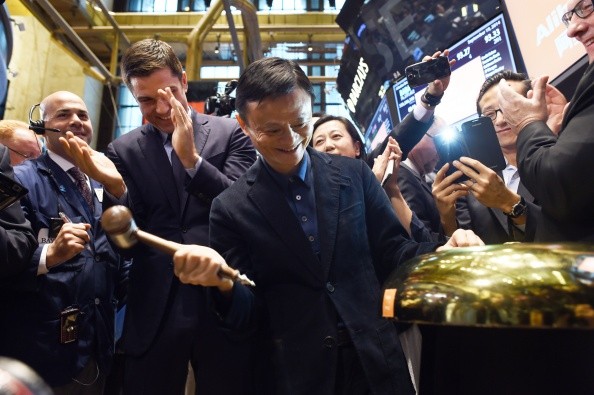Analysts see the coming year, 2017, as a breakout year for Alibaba, with predictions that the e-commerce giant’s stocks may rise about 40 percent amid a minimal increase in the overall stock markets based on expectations of banks.
An article by Barrons.com cited a Morgan Stanley report advising clients that although Alibaba's $92 stock has 40 percent advantage, some investors might be driven to sell their stocks to other investors who are concerned about the protectionist policies under President-elect Donald Trump that could affect China's market.
The report, however, said that this view on Trump's policies is too pessimistic since Alibaba is more than just an online seller of goods or a Chinese version of eBay, to be easily affected. The company is a leader in China's e-commerce market, cloud computing and other services, including financial-services markets.
"We believe that Alibaba is in the early stages of unlocking the value from what we view as its most valuable asset--a rich database that continues to accumulate from its well-controlled and extensive closed-loop ecosystem, through advancements in data technology," according to Morgan Stanley's Grace Chen and her team in a Dec. 7 report.
The bank said that the value of an Alibaba stock could be worth $130, a price target which could be broken down to $114.90 for its e-commerce business, $7.80 to its strategic investments, and $7.70 for its Ant Financial unit.
According to the report, two strategies are being considered by investors on how to trade their Alibaba stocks.
First, investors can sell the stock, now priced at around $92, with put options to buy the stock on a pullback. This is similar to the $85 put in February which can now be sold for $1.82.
Investors may also keep the put premium, if the stocks continue to advance. This year, it rose to about 15 percent. If the shares are traded below the strike price at expiration, investors may buy the stock, which has a better outlook, rather than cover the put.
For investors who already have Alibaba stocks and for those who want to buy it, they can sell the January $130 call and monetize Morgan Stanley's $130 price target, which will expire in 2018, for $2.34.
If an investor buys the stock and sells the call, it is called a "buy write" strategy. On the other hand, if a stock owner sells the call, it is called "overwriting." Both strategies have similar profiles in a way that if the investors agree to sell stocks at $130 at the January 2018 expiration, they can get paid now.
However, in case the stock does not reach $130, investors can keep the call premium as well as their stocks. And if the stock hits above the $130 strike price, investors could miss out the additional upside, but nevertheless have made a gain.
During its Sept. 2014 initial public offering, Alibaba's IPO price was $68 which surged to $119 and fell to about $59. This shows how buying the stock and selling puts are to investors.
Hence for analysts on the sell-side, Alibaba has huge potential and scope, which has both organizational strength and resources to influence the world, the report said.
Recently, Alibaba executive chairman Jack Ma met with Thailand Deputy Prime Minister Somkid Jatusripitak with a pledge to help Thailand develop a digital economy and a logistics network, with the aim to build the nation as a digital technology and regional data hub for Southeast Asia.
The report said that Alibaba will continue to unite fragmented market while trades will express greater confidence on its future.



























